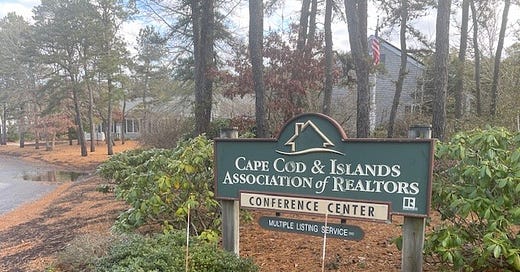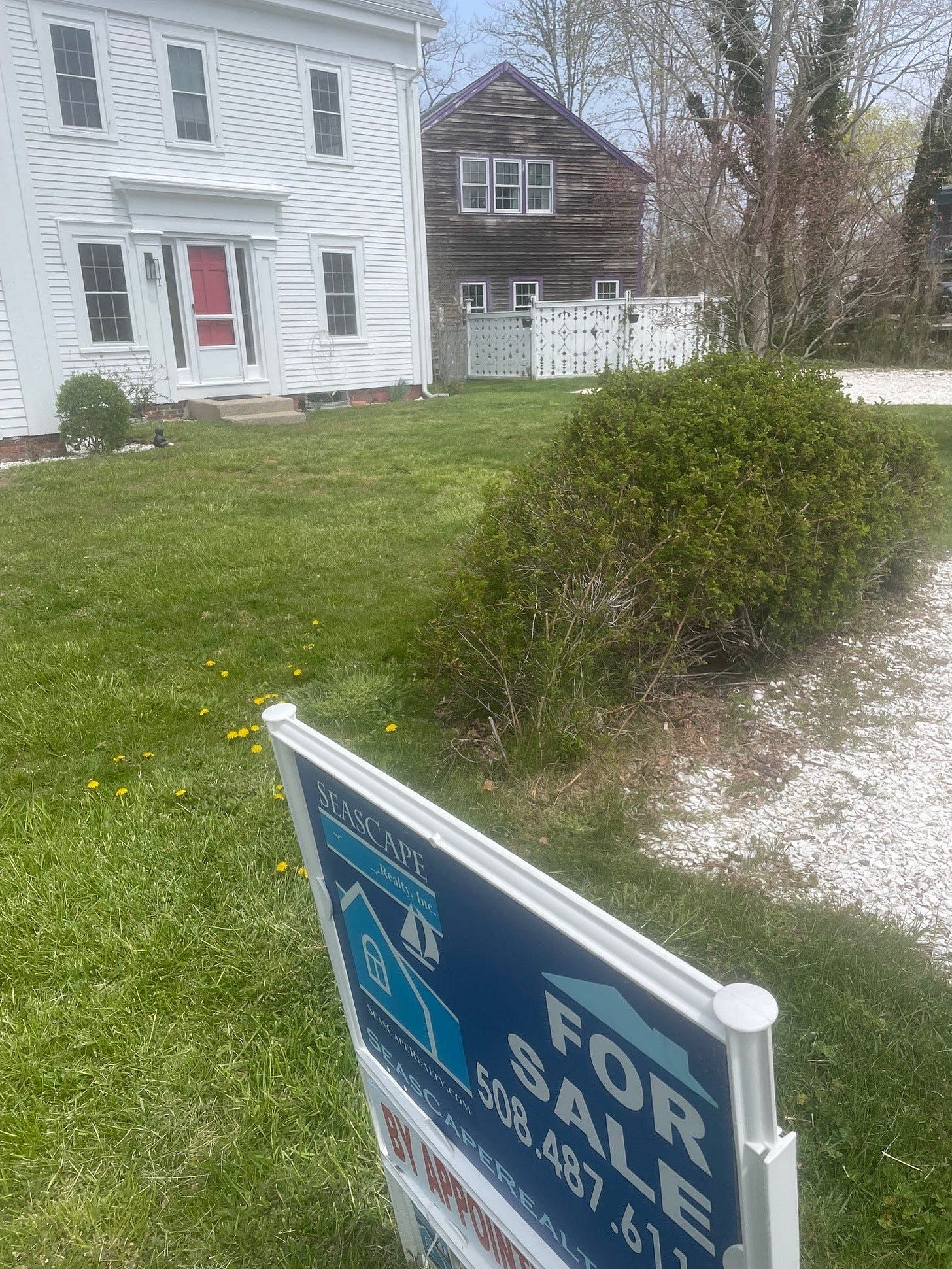Inexorably, regardless of what it means for the health and survival of our year-round community, real estate values on Cape Cod continue to claw upward.
Realtor Jamie Regan, working this market since the 1980s mainly in Falmouth and Mashpee, invoked homespun wisdom he believes came from Will Rogers back in the 1930s, though some attribute it to Mark Twain; either way, he says the folksy sentiment drives the market:
“Buy land. They aren’t making any more of it.”
We are more finite than most places, if such a concept is mathematically possible: The amazing selling point known as the Atlantic Ocean defines our boundaries. We could hone and say houses, not land, is our desirable commodity now, land being pretty much gone. But we all get the picture.
Politics, emotions, and intangibles also nuance, in pockets. Gabby Hanna, a Realtor with a Provincetown/Outer Cape focus, thought before the election that “we were turning toward a buyer’s market,” more inventory, prices softening a bit, dips here and there. “But since the election, I’m not sure anymore. Just an observation, I can’t prove it, but it seems sellers are deciding not to sell, and buyers want to be here. I’m seeing bidding wars in the last few weeks.”
By “here” she means Massachusetts but especially, given her clientele, a liberal enclave like Provincetown and the Outer Cape, “a place where people can feel comfortable, where your rights are protected if anything happens.”
Provincetown by definition is an outlier. The Cape as a whole is not as sensitive to a presidential election, though an extension of Trump tax policies that benefit the wealthiest will (if anything) create more high-end buyers.
Yet they are here already, have been for a long time, and once-daunting, nearly-unimaginable prices now course through Cape Cod’s mainstream.
Single-family properties, latest full month (November) plus year to date
Sales closed in Nov. 2024: 262
Sales closed in Nov. 2023: 228
% change: +14.9
Sales closed, 2024 year to date: 2595
Sales closed, 2023 year to date: 2452
% change: +5.8
Notes: Going back to that long-ago time known as pre-COVID, sales were more than they are now: November 2019, 334 properties closed. November 2018, 407 closed. November 2017, 314 closed. During COVID the market went bonkers, but these buyers were not freshly minted, rather people who had been thinking about that Cape home for awhile and decided to accelerate their timing. So the COVID boom was borrowing buyers from the near-future. Slightly lower sales numbers now might reflect that.
Median price, Nov. 2024: $739,000
Median price, Nov. 2023: $772,500
% change: -4.3
Median price, 2024 year to date: $763,500
Median price, 2023 year to date: $730,000
% change: +4.6
Notes: November’s year-to-year drop in median sales price is likely an artifact of a small sample size. Year-to-date is much more accurate of trends, and shows a steady increase. The historic context here is what matters: The median price of a home sold on Cape Cod in 2017 was under $400,000. The median in 2020 reached $500,000. By 2021, the median climbed to $600,000. By 2023, the median reached $700,000, and now it’s above $760,000. The temptation is to say that this growth can’t be sustainable. But then again, short of natural disaster or national economic implosion, what’s to stop it?
Current inventory (homes on the market), Nov. 2024: 623
Inventory, Nov. 2023: 575
% change: +8.3
Notes: An inventory of 623 homes in a market our size remains small, even if a tad bigger than last year at this time. Another way to frame it is that Realtors calculate that this supply would last about two and a half months if it wasn’t replenished. While not the most telling tidbit, this indicates that there remains a tight market with pressure on buyers to move quickly, and eschew low-ball bids.
Pending sales, Nov. 2024: 202
Pending sales, Nov. 2023: 175
% change: +15.4
Pending sales, 2024 year to date: 2714
Pending sales, 2023 year to date: 2466
% change: +10.1
Notes: Realtors love looking at this because it tracks what’s about to happen, defining that limbo moment between signed agreements and closings. Ryan Castle from the local board of Realtors notes that the previous month, October, showed “the highest number of pending sales in two years,” 310. That dropped in November, though Castle theorizes we will see yet more homes purchased during COVID coming back on the market. He doesn’t call it “remorse,” more that as lives change, including workplace requirements evolving back to in-person, we will see some unloading — for profit.
New listings in Nov. 2024: 177
New listings in Nov. 2023: 199
% change: -11.1
New listings, 2024 year to date: 3512
New listings, 2023 year to date: 3048
% change: +15.2
Notes: A dip in November’s new listings compared to last year might be nothing more than a blip, given year-over-year strong movement upward. But it’s worth watching, particularly because state-wide, a listings decline was more pronounced in November. New listings become inventory, and beg a related question: How long do they stay on the market? Interesting data point: “Days on the market until sale” in November averaged 44, while a year ago the average was 34. Conventional wisdom says that the longer properties are on the market, the more downward pressure on prices. Not really seeing that.
Source for all data; Cape Cod and Islands Association of Realtors:
http://capecod.stats.10kresearch.com/reports
Haven’t subscribed yet? With all due respect, why not? Make it possible to see a Voice and support good reporting, strong perspectives, unique Cape Cod takes every week. All that for far less than a cup of coffee.
So please, subscribe:
https://sethrolbein.substack.com/welcome
And if you are into Instagram, want to see some additional material, maybe share the work, here you go:






If we don't have a real plan in place, we will repeat the past and we inevitably will be like any other strip mall town around. Sitting at a desk in front of 28 today vs 10 years ago says a lot. A drive to Chatham from Falmouth this morning took almost 2 hours. We can't keep doing the same and expecting something to change in a good way. The outcome on the Vineyard and Nantucket is not long off for us.
When I moved to the Vineyard in 1995, my house (a 1750 SF Cape) was appraised at $285,000. Today, comps in my neighborhood are in the $3-4 million range. And that’s for someone to buy my house, blow it up and build their dream McMansion for another $8 million. It’s insanity.